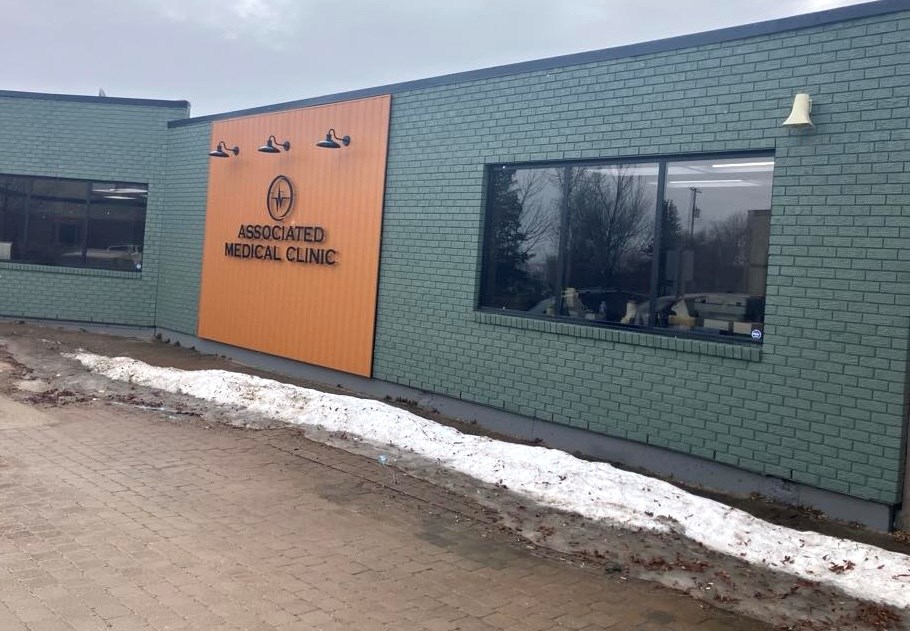LAC LA BICHE – Residents of the Lac La Biche area who are looking for a family doctor have a few options, according to Heather Stromquist, chair of the Lac La Biche Attraction and Retention Society (RARS).
Many of the new physicians who have started practicing in the community are accepting new patients. If a resident does not have a family physician, she said, the Associated Medical Clinic in Lac La Biche will arrange for an appointment.
“Residents can request a ‘Meet and Greet’ appointment with a physician who is accepting new patients. It is timelier for residents to see a physician with new physicians practicing at the clinic,” Stromquist told Lakeland This Week.
According to Stromquist, there are now a dozen physicians practicing in Lac La Biche. Two of these physicians, Dr. Cornelius Nortje and Dr. Tracy-Lee Lindenberg, announced last fall that they would be closing their practices at the Associate Medical Clinic, and are anticipated to stay in the community until June.
Two other physicians, Dr. Moses Inojie and Dr. Okiemute Inojie, will be relocating to Lac La Biche soon, undergoing a 12-week assessment, and are anticipated to start seeing patients in the fall.
Among the physicians who are currently practicing in the community are an obstetric surgeon, Dr. Kolawole, and an anaesthesiologist, Dr. Apelehin.
“With an anaesthesiologist and a qualified obstetric surgeon, Lac La Biche RARS is hopeful the surgery at William J. Cadzow Healthcare Centre will be active soon,” Stromquist said.
On April 2, Stromquist informed the Lakeland This Week newsroom that an additional physician, Dr. Adeniran, will also be coming to Lac La Biche in the future. Stromquist noted that he will need to complete a 12-week assessment and relocate to the community, and this will take some time.
Lac La Biche RAR has reached out to Rural Health Professions Action Plan (RhPAP) and Alberta Health Services (AHS) to have the online listing of physicians practicing and accepting new patients in Lac La Biche updated.
“We will have more physicians taking new patients in the coming months,” she affirmed.
The physicians at Associated Medical Clinic, Stromquist said, have been extremely proactive and helpful in attracting new physicians to the community. Additionally, she added, the local school administrations, business owners, churches, Bold Centre staff, Lac La Biche County, Portage College, Alberta Health Services (AHS), (RhPAP), and Lac La Biche RARS have all been integral in this pursuit.
RARS, Stromquist continued, is grateful that these new physicians have chosen Lac La Biche to practice. Relocating to the community from another country or elsewhere, she said, is no small undertaking, particularly for those who have families. Making new friends is not easy for children and it can be just as complicated for adults, as they build a support network in the local community.
“It's so important to remember that physicians are human, and they also deal with illness, of themselves and their families, life challenges, childcare challenges, feeling homesick or stressed and worn out from overnight emergency shifts and dealing with life and death scenarios on a daily basis. This community is amazing, and I know it will continue to wrap itself around these new physicians and their families, so they feel comfortable calling this home,” she said.
Rural Health Action Plan
While it has yet to be determined how it will benefit the Lac La Biche area and the Lakeland region specifically, the Alberta government says it is strengthening rural healthcare in the province through its Rural Health Action Plan.
According to Maddison McKee, a spokesperson for the Alberta Ministry of Health, this initiative tackles workforce shortages, access to care, healthcare models, disease prevention, and overall wellness. It also supports rural health education, workforce recognition, and retention, which is done to ensure a sustainable healthcare workforce in rural communities.
“This plan is part of our broader Health Workforce Strategy, designed to attract, train, and retain healthcare workers across the province,” she said.
Key government actions that are already underway, according to McKee, include a new compensation model for family physicians, which became effective on April 1, and is aimed at enhancing comprehensive patient care.
Additionally, McKee said, the province has launched the $16 million Rural and Remote Family Medicine Resident Physician Bursary Program. The objective of this program is to incentivize medical residents to establish practices in rural and remote areas.
To increase the number of Alberta-trained physicians, McKee said, the government is also expanding undergraduate medical training seats, residency positions, and opportunities for international medical graduates.
The province is creating rural medical training opportunities through a partnership with the University of Lethbridge to develop a regional training centre, which she says will act as a hub for medical education and help retain healthcare professionals in surrounding communities.
In the north, the University of Alberta is partnering with Northwest Polytechnic to develop a regional health professional training centre in Grande Prairie.
“This initiative will allow medical students to complete most of their education outside metropolitan areas, benefiting rural communities, as students who train in rural areas tend to practice there,” she said.
To date, 40 out of 60 undergraduate medical education seats and 15 out of 30 international medical graduate seats have been implemented, McKee said. The first class of students will start in Grande Prairie in 2025.
“Once the training expansion is complete in both northern and southern Alberta, an additional 100 physicians will be ready to practice annually,” she stated.



